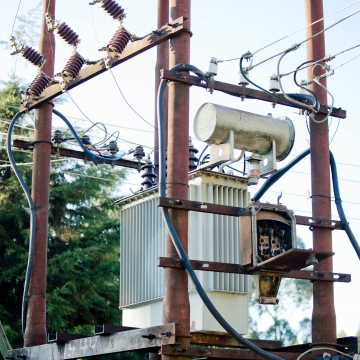Implementation and scale-up of a biomass pellet and improved cookstove enterprise in Rwanda
This paper reviews the experience of a for-profit firm in Rwanda promoting biomass pellets and a fan micro-gasification improved cookstove as a clean cooking alternative to charcoal. Consumers purchase locally produced biomass pellets and receive the improved cookstove on a lease basis. The cost of the pellets and stove(s) is lower than the cost of cooking with charcoal in the urban setting where our study takes place. Inyenyeri has been piloting its business model since 2012.
Household Air Pollution (HAP), Microenvironment and Child Health: Strategies for Mitigating HAP Exposure in Urban Rwanda
Exposure to household air pollution (HAP) from cooking and heating with solid fuels is major risk factor for morbidity and mortality in sub-Saharan Africa. Children under five are particularly at risk for acute lower respiratory infection. We use baseline data from randomized controlled trial evaluating a household energy intervention in Gisenyi, Rwanda to investigate the role of the microenvironment as a determinant of children's HAP-related health symptoms. Our sample includes 529 households, with 694 children under five.
Early Adoption of an Improved Household Energy System in Urban Rwanda
Cooking with solid fuels and inefficient cookstoves has adverse consequences for health, environment, and human well-being. Despite the promise of improved cookstoves to reduce these impacts, adoption rates are relatively low. Using a 2-wave sample of 144 households from the baseline and first midline of an ongoing 4-year randomized controlled trial in Rwanda, we analyze the drivers and associations of early adoption of a household energy intervention marketed by a private sector firm.
Supply Considerations for Scaling Up Clean Cooking Fuels for Household Energy in Low‐ and Middle‐Income Countries
Promoting access to clean household cooking energy is an important subject for policy making in low‐ and middle‐income countries, in light of urgent and global efforts to achieve universal energy access by 2030 (Sustainable Development Goal 7). In 2014, the World Health Organization issued “Guidelines for Indoor Air Quality: Household Fuel Combustion”, which recommended a shift to cleaner fuels rather than promotion of technologies that more efficiently combust solid fuels.
Are South African consumers arm-chair environmentalists? Implications for renewable energy
Discussions between policymakers about renewable energy have gained momentum in recent years, amid growing recognition of the need for more investment in green energy sources. The question is whether households in developing countries like South Africa will support green energy actions if it comes at an additional cost or whether they are simply arm-chair environmentalist. To assess this, we use the contingency valuation method (CVM) to identify the determinants of support for renewable energy.
Pricing electricity blackouts among South African households
South African households, like households in many other developing countries, are faced with regular power outages. This is a big problem, since the outages that the households experience are both frequent and long in duration. Efficient electricity infrastructure investment decisions are possible only if the welfare loss of electricity blackouts is determined. We estimate a measure for welfare analysis. We subject respondents to eight power outage scenarios. We use a random parameter panel Tobit model to account for both zero willingness to pay (WTP) and cross-sectional heterogeneity.
Spatial and temporal projection of fuelwood and charcoal consumption in Mexico
Fuelwood and charcoal are fundamental fuel sources for the residential sector in Mexico. A Business-As-Usual (BAU) projection by means of a spatially-explicit approach was developed to assess national fuelwood and charcoal consumption for the period 2010 to 2030. The model was calibrated for 1990–2000 and 2010 projections were validated against official census data for the same year. For 2010, we estimated that fuelwood and charcoal accounted for 48% of total residential energy demand.
Pagination
- Previous page
- Page 38
- Next page
